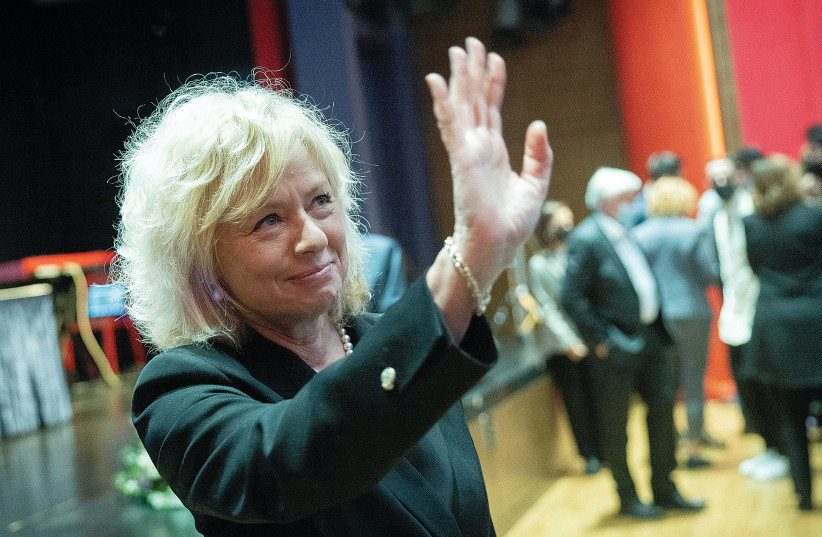The role of Israel's attorney general has been one of the major concerns of the proposed judicial reforms, but the debate around the office escalated on Sunday when National Security Minister Itamar Ben-Gvir refused to be represented by the attorney general in court.
The escalation between the coalition and Attorney General Gali Baharav-Miara lies in the dispute over whether the office has too much power. The attorney general's office is tasked with twin responsibilities in Israel's current legal system, prosecution and government legal advisor.
Role of Israel's attorney general
The attorney general plays a law enforcement role as the head of the state attorney's office through the state attorney general. The AG also directs other law enforcement bodies in prosecution activities, including the police. The office is also the only body that can open prosecution of a prime minister, or strip parliamentary immunity from a Knesset member.
In its second role, as the chief legal advisor for the executive branch, the attorney general's office and a myriad of deputies advise the preparation of legislation to ensure it is in line with the law. As an interpreter of the law, the AG's opinions are binding for the government. As the government's lawyer, the office represents the state in court. The office makes exceptions to this, but only in rare instances.
Reformists contend that these two fields of work by the attorney general's office should be divided into two different roles - a state prosecutor-general and a chief legal advisor.

Critics have suggested that having the state prosecutors working together with government advisors can lead to a conflict of interest. Too many responsibilities can also lead to some duties being neglected, some reformists argue.
The legal advisor role has received much of the ire from reformists, who argue that the attorney general can dictate policy and limit the designs of duly elected officials.
While reformists argue that the legally binding positions of the attorney general railroad government policies such as those on counter-terrorism and security to the office's desire and opposition posits that in a system in which there are few checks and balances like Israel, the AG provides an additional check on extreme policies. They also contend that having a legal expert review legislation makes the legislation more efficient and reduces future conflict with the High Court of Justice.
AG suspends demotion of Tel Aviv district police commander
Ben-Gvir and Israel Police commissioner Kobi Shabtai decided to remove Tel Aviv district police commander Ami Eshed from his position on Thursday over his approach to the protests.
This decision was frozen by the attorney general until the legality of the move could be reviewed.
Ben-Gvir argued that Baharav-Miara was interfering with issues on national security that were under his purview, not hers.
One of the elements of Justice Minister Yariv Levin's original announcement of the judicial reform was that government legal advisors must hold the same opinion as the government. Currently, government legal advisors can hold different legal opinions than government officials. If the government is brought to court over a policy or law, this would mean that they would have legal representation in court that would hold a different position than them.
An example of this would be the case of Shas Chairman Arye Deri's ministerial appointment. While the government passed a Basic Law amendment allowing Deri to serve as a minister despite his prison sentences and supported his retaining the post before the High Court, the attorney general advocated against the reasonableness of Deri's appointments.
As part of the reform plan, proponents argue that government officials should not be constrained by attorneys not representing what they see as their interests before the court. They believe that elected officials should instead be able to seek private representation.
While there has been no legislation promoting these thus far, Ben-Gvir's recent refusal to accept the attorney general's representation puts the institution to the test.
Ben-Gvir said in a letter that he no longer trusted the attorney general to represent his interests in court, and for different appeals against him and his policies he would hire private attorneys or represent himself in the future.
Baharav-Miara rejected this position but noted that in special circumstances seeking outside representation was possible. However, this was decided on a case-by-case basis and no specific appeal was mentioned by Ben-Gvir.
It is unlikely that the High Court would accept a government official representative besides those from the attorney general without the office’s permission. It would be untrodden ground if elected officials like Ben-Gvir regularly entered the court with another attorney, and challenged a representative of the A-G in a session. If enough officials did this, it could lead to the illegitimacy of court rulings, or even the attorney general being strong-armed into providing the aforementioned special accommodations more often.
What can be anticipated is that the clash between Ben-Gvir and Baharav-Miara will likely lead to increased motivation for the coalition and its supporters to introduce new judicial reform legislation to change the role of legal advisers and the attorney general.
